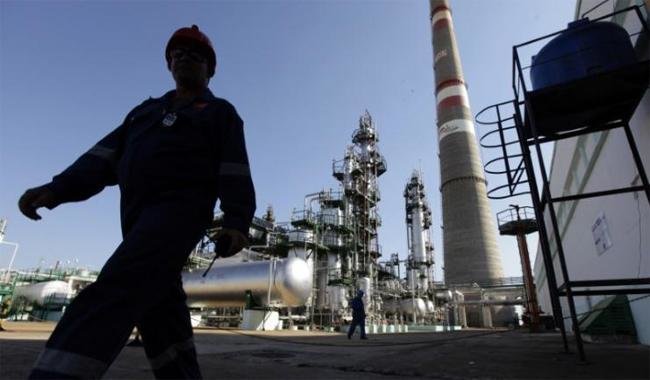
Cushing Build Leads to Drop in Oil Prices

Oil prices on Monday plunged following the release of data pointing to a rise in U.S. crude delivery hub inventories in the recent week. The news increased worries that the disturbed emerging markets as well the trade tensions would adversely affect the fuel demand.

Fall in oil prices increase worries that disturbed emerging markets as well as the trade tensions could adversely affect fuel demand.
Fall In Oil Prices
Brent crude futures LCOc1 plunged by 0.3% or 20 cents and settled at $72.61 per barrel. The U.S. West Texas Intermediate (WTI) crude futures CLc1 dropped by 0.7% or 43 cents and settled at $67.20 per barrel.
Traders noted that prices dropped earlier in the trading session by over $1 per barrel after inventories at the Cushing, Oklahoma WTI delivery hub climbed by approximately 1.7 million barrels. The traders who cited data from Gensacape noted that the change happened in the week leading up to August 10.
Sources claim that Cushing’s crude inventories have not been doing so well, partly as a result of outage at an oil processing plant in Canada which led to a reduction of crude flow into the delivery hub.
The Canada processing facility has reportedly started increasing oil production and is also expected to recommence full production come September. John Kiilduff, partner at New York-based Again Capital Management, stated that Cushing might eventually begin to recover from the extremely low levels of inventories.
Increase in Contagion Risk
Analysts mentioned that the financial crisis of Turkey spread the contagion risk into all emerging economies, dragging down Russian rouble, Mexico and Argentina’s pesos and South Africa’s rand.
Not only were the economies affected, but the stocks of the emerging markets were also compromised by the crisis and led to a reduction in the outlook and growth of oil demand.

The recent financial crisis of Turkey dragged down Russian rouble, Mexico and Argentina’s pesos and South Africa’s rand
The crisis is reportedly escalating worries that a stronger trade war between China, the United States and European Union would cause a strain on business activities in the leading world economies.
Turkey is a considerably low consumer of oil as it accounts for a number less than a million barrels daily – which is approximately 1% of the global demand. Jim Ritterbusch, the president of Ritterbusch and Associates noted that concerns about contagion are propelling risk-off sentiment in the market.
Ritterbusch added that the energy issue is constantly being increased by daily news that may not particularly have a huge effect on the current oil demand or supply temporarily but could, however, have a dramatic effect on the oil balances subsequently.
OPEC Report
In addition, a report by the Organization of Petroleum Exporting Countries projected a lower demand for its crude oil in 2019. Sources claimed that the organization’s rivals boosted their oil production while Saudi Arabia cut back on its supply to avoid oversupply return. OPEC’s monthly report stated that 32.05 million barrels of crude are needed per day globally from all its 15 members next year. The forecast decreased by 130,000 barrel per day from July forecast.
The U.S. Energy Information Administration stated that the US oil production from seven primary shale basins was expected to increase by 93,000 barrels per day in September to 7.52 million barrel.
OPEC’s report also expressed concerns over global trade tensions and how it had affected crude prices last month, even though it expected refined products to back the market.
The Report indicates that a stronger global economic development coupled with an increase in industrial activity ought to bring back demand for distillate fuels in subsequent months and lead to a further decline in diesel inventories.
Sources also reported that OPEC reached a consensus with a group of Non-Opec countries on June 22-23 to go back to 100% compliance with the cuts in oil outputs.
The cuts started in January last year following months of underproduction by some members, including Venezuela and some other member which made the adherence go lower than 160%. OPEC also stated in the report that the oil output in July increased to 32.32 million barrel per day.
Even though it is higher than the demand forecast for next year, it is only up by just 41,000 barrel per day from last month as the cut by Saudi offset increases somewhere else.
More in Business
-
`
Will Bitcoin Crash to $0 or Hit $500K in a Decade?
Bitcoin’s future divides analysts into two extreme camps. Some see it becoming one of the most valuable financial assets in history....
October 12, 2025 -
`
Can Anyone Really Blame Mariah Carey for ‘Leaving’ the Real World?
Mariah Carey isn’t like the rest of us. From the moment she opens her mouth and that voice pours out, she...
October 10, 2025 -
`
Intel Invests in Nvidia, but Ratings Remain Unchanged
Intel’s stock jumped more than 30% after news broke that Nvidia poured $5 billion into the company. The rally sparked renewed...
October 5, 2025 -
`
Homeownership vs. Real Estate Investment: What’s Better?
Homeownership has long been seen as the American dream. But today, more people are asking: Is it really the smartest way...
October 3, 2025 -
`
Why the Armani Fashion Empire Is Set for an IPO
Giorgio Armani, one of the most iconic names in global fashion, left behind a detailed plan for the future of his...
September 27, 2025 -
`
Why Do Pokémon Cards Outperform the S&P 500 As an Investment?
Pokémon cards have outperformed the stock market by a mile. Since 2004, they have delivered a staggering 3,821% return, according to...
September 27, 2025 -
`
America’s Billionaires Get Older—Millennials Wait for Wealth Transfer
Many of today’s billionaires don’t match the youthful tech-founder image often portrayed. While names like Elon Musk, Sam Altman, and Mark...
September 21, 2025 -
`
Can President Trump Legally Fire Fed Governor Lisa Cook?
Lisa Cook is right in the middle of one of the most explosive legal battles in Washington. President Trump wants her...
September 20, 2025 -
`
Jeff Bezos’ Advice for Millennials Who Want Financial Success
Millennials today have grown up in a world where instant access to products and services is the norm. From two-day deliveries...
September 13, 2025















You must be logged in to post a comment Login